|
Our Therapies
|
Integrative Manual Therapy (IMT)
Origin of IMT What is IMT ? IMT achieves health and healing by taking into account the diverse systems of the human body and address dysfunction at the cellular level. IMT practitioners identify and treat the underlying causes of dysfunction using hands-on techniques. IMT also integrates a wide range of nutritional programs (i.e. natural supplements, diet, and herbs), and psychotherapeutic approaches to develop a customized solution for an individual patienttom’s needs. IMT treatment techniques are based on the premise that the body has the potential to self-correct or heal itself under the right circumstances. Tissue repair at the cellular level is a normal process that occurs within the body. Pain and dysfunction, on the other hand, are an indication that there is too much cell or tissue dysfunction for the body to restore health on its own. Under these conditions, intervention is required to improve the body’s self-correction mechanisms.
How is IMT performed ?
The evaluation may range from physical to non-physical constructs (i.e. emotional, cognitive, spiritual, and more). IMT practitioners feel the body’s circadian biological rhythms and movements by gently placing their hands on the client. (One such example of these rhythms is the heart beat.) The diagnosis will identify patterns of pain or dysfunction and develop a complete picture of the client’s state of health. IMT techniques facilitate healing on a cellular level and encourage tissue repair. As with the diagnostics, the treatment approach is integrated and includes many systems of the body, and in the system that includes anatomical, physiological, nutritional, and psychological aspects. Some of the anatomical systems that most often require intervention are bone, muscle, circulation, nervous tissue, the gastrointestinal tract, the urogenital system, brain, and cardiovascular. IMT also addresses physiological systems of hormones, sleep cycles, metabolism, and the way clients handle stress. IMT treatment of the body can be broken down into three components : treatment of anatomical problems (patho-anatomy), treatment of physiological problems (patho-physiology), and treatment of psychological problems (mental, emotional and spiritual). Most clients’ treatment plans involve all of these. What problems can IMT help ? IMT treats ailments such as Chronic Back and Neck Pain, Plagiocephaly, Migraine Headaches, Allergies, Asthma, Learning Disabilities, Autism, ADHD, Osteoarthritis, Diabetes, Blood Pressure Problem, Eczema, Sports Injuries, Frozen Shoulder, Carpal Tunnel Syndrome, Scoliosis, Chronic Fatigue, Sinusitis, Fertility and Women’s Health Needs, Hemorrhoids, Cerebral Palsy, Spinal Cord Injuries, Digestive Problems , Irritable Bowel Syndrome, Depression, Anxiety, Urinary Tract Infections, Varicose Veins, Poor Circulation, Insomnia. In addition, many patients use IMT preventatively to maintain optimal health. |

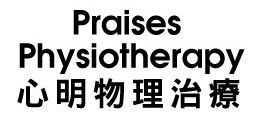
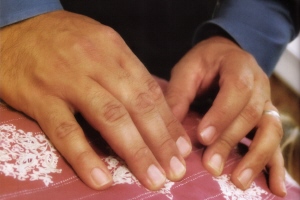


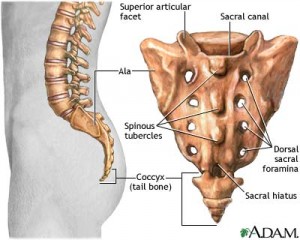
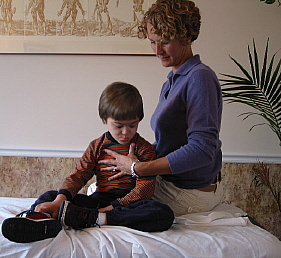

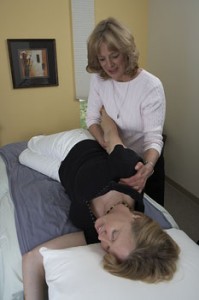 Treatment is manual, with the IMT practitoner placing his/her hands on the client’s body. It involves gentle manipulative techniques to promote tissue repair, normalize structure and restore function. Unique to IMT is the integration of manual therapy techniques for all systems in the body (i.e. bone, nerve, fascia, muscle, organ, lymph and circulatory systems). Usually, multiple systems are addressed to facilitate recovery, as a dysfunction in one system may influence or be influenced by a problem in another system. During the session IMT practitioners continually re-evaluate the body by specific Integrative Diagnostics techniques in order to reveal the new layers of the dysfunction. IMT is the integration of techniques to assess and address all systems in the body, aiming at finding and treating the cause and not just the symptoms.
Treatment is manual, with the IMT practitoner placing his/her hands on the client’s body. It involves gentle manipulative techniques to promote tissue repair, normalize structure and restore function. Unique to IMT is the integration of manual therapy techniques for all systems in the body (i.e. bone, nerve, fascia, muscle, organ, lymph and circulatory systems). Usually, multiple systems are addressed to facilitate recovery, as a dysfunction in one system may influence or be influenced by a problem in another system. During the session IMT practitioners continually re-evaluate the body by specific Integrative Diagnostics techniques in order to reveal the new layers of the dysfunction. IMT is the integration of techniques to assess and address all systems in the body, aiming at finding and treating the cause and not just the symptoms.